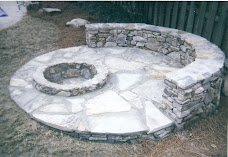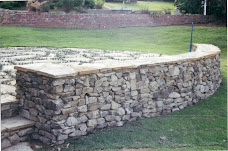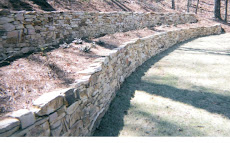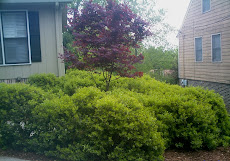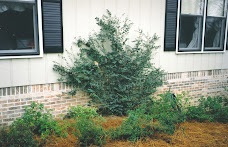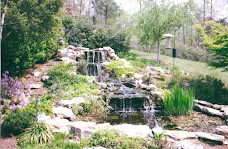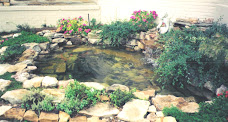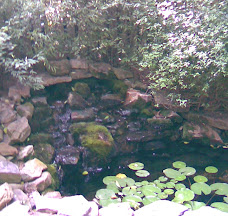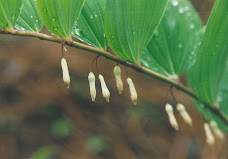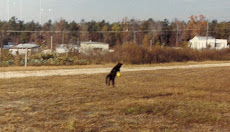Most folks I know tell me that Fall is their favorite season of the year. I’m in complete agreement. If you ever happened along an episode of Family Feud and the question was, “reasons people say Fall is their favorite season”, the answers would probably read something like this: “Out of one hundred people surveyed! 2 people said –the school year starts, 8 said – Halloween & Thanksgiving, 32 said- football season, and 58 said - leaves turning” [host then smooches the contestants]. With the colorful fall foliage being so popular, I've decided to present certain trees with awards.
As far as criterion to receive my award is concerned, it’s just this: all trees must be native to our part of the state. So, for example, dogwoods are in and crape myrtles are out, even though most crape myrtles offer excellent fall color. Figuring out what constitutes a native tree is an interesting question, but for now, we'll just say it's got to be a tree you might see while strolling through the Alabama woodlands.
So, on to the awards!
Best Early Color – Dogwood (Cornus florida) – dogwoods are one of the first trees to turn and if they managed to get through the spring without too much leaf spot damage, the dark red colors (especially if highlighted with some of their bright red berries) is a sure sign that Fall is here. Another plus with dogwood is their ability to hold on to leaves and give an extended show. Runner up: black gum (Nyssa sylvatica)
PHOTO RIGHT: Dogwood 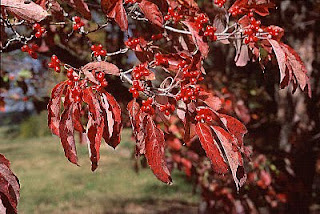
Best Red Overall – Red Southern Maple (Acer rubrum) – I’m sort of partial to the non-hybrid, old fashioned, Southern red maple. There is a little more variation in color, with reds usually dominating, but Southern red maple can also give us beautiful oranges and yellows. Runner up: Sourwood (Oxydendrum arboretum)
PHOTO BELOW: Southern Red Maple  Best Orange Overall – Southern or Florida sugar maple (Acer barbatum) – I don’t recall seeing this tree in local nurseries, although, I could be wrong. Florida sugar maple is a nice change of pace from the oft used Southern red maple, and it’s more suited to our climate than regular sugar maple (Acer saccharinum). Orange fall color isn't so easily obtained, so an effort to get one of these trees in your yard may have me saying to you, one day in the future, “orange you glad you planted a Florida maple?” Runner up: American Smoke Tree (Cotinus obovatus)
Best Orange Overall – Southern or Florida sugar maple (Acer barbatum) – I don’t recall seeing this tree in local nurseries, although, I could be wrong. Florida sugar maple is a nice change of pace from the oft used Southern red maple, and it’s more suited to our climate than regular sugar maple (Acer saccharinum). Orange fall color isn't so easily obtained, so an effort to get one of these trees in your yard may have me saying to you, one day in the future, “orange you glad you planted a Florida maple?” Runner up: American Smoke Tree (Cotinus obovatus)
PHOTO LEFT: Florida Sugar Maple .jpg)
Best Yellow Overall – Pignut Hickory (Carya glabra) – Deep banana yellow is how I’d describe its Fall color. This big tree makes an impressive statement. Pignut hickory is rarely found for sale in nurseries, so if you have one in your yard, consider keeping for its bold autumn statement . Runner up: Tulip poplar (Lirodendron tulipifera)
PHOTO ABOVE: Pignut Hickory
Best Late Color - Red Oak (Quercus rubra) - So many oaks to chose from! But red oak is definitely one of the better oaks for superior fall color. You'll have to wait, however, as the deep red colors don't show themselves until well into November. Runner up: A testament to it's long show of fall color- Dogwood (Cornus florida)
PHOTO RIGHT: Red Oak
Special award:
Best Fall color from a tree no one wants – Sweet gum (Liquidambar styracifula) – Sure, those prickly gum balls are a nuisance. You wouldn’t want to have one growing near your parking area or next to a sidewalk. Remember your mom telling the tree man to not cut any dogwoods down, but to “take out that ugly sweet gum!”? Faults aside, sweet gums do have great fall color. They are the “crazy uncle at family gatherings” of trees. Look up and enjoy! Yellows, reds, purples…it’s all there; just be careful not to trip over a gum ball when admiring them. Runner up: Popcorn tree (Robinia pseudocasia)
PHOTO LEFT: Sweet Gum
My apologies to the trees, very worthy of acclaim, which didn’t receive an award.
Sunday, November 15, 2009
The 2009 Harmony Landscapes Alabama Native Tree Fall Color Awards
Posted by
themanfromearth
at
5:56 PM
0
comments
![]()
Labels: Rob's musings, trees
Subscribe to:
Comments (Atom)


